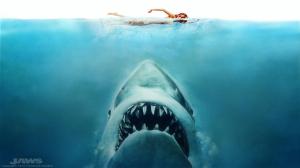JE T’AIME CINEMA by PAUL LAIGHT
I have a confession to make. I am a love cheat. I love the cinema but, of late, I have been cheating on it with Television. I couldn’t help myself. TV used to be cinema’s bastard child but now it’s all grown up and wow, has it matured! Gone are the past memories of four channels with some programmes of high quality yet limited choice. Now we have four thousand channels to choose from and while much of it is light bum-fluffery there has been some great product, notably dramas such as: Game of Thrones, The Walking Dead, 24, The Sopranos, Hannibal, Boardwalk Empire, Breaking Bad, The Fall, Daredevil, Peaky Blinders, Doctor Who, True Detective, Band of Brothers and many more I have forgotten or just haven’t had time to watch. But never fear cinema I still love you.
The moment I purchase a cinema ticket, in fact even before I leave the front door knowing I am about to leave for the cinema I get the charge, the buzz and the anticipation of getting a movie fix. Because for me going to the cinema does what television cannot: it takes me out of my home. It takes me off the street. It takes me out of THIS world. It takes me to a dark secluded spot sat staring at a gigantic silver screen waiting for the moment the projectionist feeds celluloid through light, well digital files though a computer and then a lens or something; anyway, you get the picture. Then the movie starts and for the next few hours I’m transported to another world featuring: places, times, characters, sounds, images, events etc. that are beyond my imagination. And when the movie ends there’s a rush of excitement, a reaction to the cinematic assault on the senses. But, alas, the fix cannot last. Reality is soon knocking on my door.
Cinema offers a wide-screen visual delight. Indeed, when television first came into people’s homes film producers were frightened that this new-fangled ‘radio with pictures’ would steal away audiences so Hollywood made bigger, though not necessarily better, movies; epics such as: The Robe (1953), The Ten Commandments (1956), Ben Hur (1959) and Cleopatra (1963). Obviously, the epics just keep coming notably in the raft of summer blockbusters which infest the screen. This year has been no different with films such as: Ant-Man (2015), Avengers: Age of Ultron (2015), Jurassic World (2015), Fast and Furious 7 (2015), Mission Impossible: Rogue Nation etc. delivering with spectacular monsters, crashes and stunts.
While such blockbusters may lack depth of character than many TV dramas it’s the spectacle I crave at the cinema. That moment where you go giddy because you haven’t breathed for a minute until all the air rushes from your mouth as one simultaneously pushes your jaw back shut. Good old TV cannot do this though. The television set traditionally occupies a foremost place in the ‘living room’; it’s small compared to the cinema screen and has kind of replaced the hearth that used to provide heat and light. The TV glows and is reminiscent of the old-fashioned campsite fire where families or scouts swap ghost stories while capturing the heat from the flames.
Cinema offer a short, sharp hit compared to TV. Often, a longer running drama series on TV will require a six, ten, thirteen or even longer week commitment. Of course, the introduction of streaming or binge-watching has hacked this idea down to size but movies are still economical and quicker-paced, affording little in the way of fat to the storytelling. Cinema characteristically adopts a tight narrative organised around a particular problem or disruption that is resolved at the denouement where some TV shows, while resolving some plots, will hook us in with shocks to keep us watching and sometimes this can be frustrating as the two-hour or so closure and resolution that cinema offers is very satisfying to me. One of my favourite films Jaws (1975) is a great case in point. Here a shark terrorizes a local community in the United States and the cause-effect narrative takes us through a series of conflicts involving: shark attacks, pursuit of the shark and ultimately the killing of the shark. Thus, film is able to offer a satisfying conclusion to a thrilling story. Ultimately, film offers catharsis and the endings of films such as: Fight Club (1999), Chinatown (1974), The Godfather (1970) and Planet of the Apes (1968) all build to unforgettable climaxes.

Yet, the major concern I have with committing to a new TV drama is the length of time required to get in AND out of the story. I think long and hard about such a commitment but with film one knows it’s not going to be as such. Indeed, one of the reasons I have not watched Mad Men yet is the amount of seasons ahead of me. I’ve been married and I know how much hard work it is. I just don’t feel ready to commit just yet to Don Draper and his “crew”. Plus, with TV shows designed with advertisers in mind adverts can get on the nerves when in the midst of the narrative although the set-top box and Netflix revolution has put that issue aside as has the DVD box-set. Despite this though Cinema is still the preferred mode of voyeuristic, narcissistic and vicarious pleasure though as you sit in a comfy seat eating over-priced confectionery and have a non-stop viewing experience with all adverts before the main presentation. Of course, most films do have multiple examples of product placement, especially Tom “Dorian Gray” Cruise’s M:I franchise but that’s subliminally secreted within the narrative and action and thus not an issue for me. Overall, TV’s episodic form lends itself perfectly to advertisers yet once the movie has started it remains a satisfying whole and is never interrupted with a word from the sponsor.
While I admit that TV stories are gaining more and more complexity notably in regard to depth of characterisation and emotional power they are intrinsically “talking heads” and dialogue lead. TV is still anchored by a lack of screen-size and scope. Rarely does the action on a TV show reach the heights of the cinema although in recent times 24 and Daredevil have featured some spectacular set-pieces and fight scenes. Moreover, Hannibal has to be the most exquisitely edited TV show I have ever seen. But is it better than the cinema? Boardwalk Empire showed flashes of narrative genius with its parallel storytelling from past and present but does it reach the stunning narrative expertise of say Memento (2000);the story of Leonard Shelby (Guy Pearce) – a man with no short-term memory – which presents the complex plot BACKWARDS! Moreover cinema, unlike TV, is also able to breach huge temporal and spatial differences through editing. Perhaps the most famous single cut in cinema history appears in Stanley Kubrick’s 2001: A Space Odyssey (1968). Opening with the “Dawn of man”, apelike hominids learn how to use tools. As the ape/man smashes down the bone he then launches it into the air. One cut later and the audience are thrown thousands of years into the future and thousands of miles into space. Such vision demonstrates the power of cinema and takes the breath away.
The arch edict screenwriters should follow when writing for the screen is one should: “Show don’t tell.” Dialogue is also a vital tool in the screenwriter’s box as filmmaker’s such as Quentin Tarantino and The Coen Brothers have demonstrated in movies such as: Reservoir Dogs (1991), Pulp Fiction (1994), The Big Lebowski (1997) and Fargo (1996). Nonetheless they have married quirky, stylish dialogue with strong visual flair. Indeed, the screenwriter must be aware that cinema represents a marriage of sound and vision. While TV traditionally favours dialogue to further the story and action, cinema uses a whole host of devices to tell the story including: cuts, dissolves, wipes, flash-cuts, voice-over, overlapping dialogue, close-ups, point-of-view shots, shot-reverse-shot, Steadicam shots, crane shots, moving shots, dolly shots, wide-screen panoramic views, black-and-white film, colour film, and use of diegetic and non-diegetic music. Indeed, for me there is nothing more cinematic than great music being placed over fantastic images. Filmmakers such as Tarantino, the Coens, and Martin Scorcese are all aware of this. Tarantino uses non-diegetic music expertly in the infamous ear-slicing scene in Reservoir Dogs (1991).
And so I conclude with a mild apology to cinema. I have been seeing a lot of Television these days I DO STILL LOVE YOU! I love your form, style and content and the way they combine to move me emotionally and physically in a way television cannot. Movies will always reach the parts Television cannot. Something magical occurs when watching a film. A whole new world develops before my very eyes; heroes and heroines are thrown into adventure and conflict with events changing their lives forever. Be it falling in love, falling out of love, fighting for their lives or the lives of the ones they love, struggling against the odds to achieve their greatest desires or, tragically failing at the last obstacle. That for me is cinema. It’s an escape from reality the moment one leaves the house. Saying goodbye to the box, not only knowing it will be there when one comes back home but also knowing that it will rarely change my life. While its heat may keep the living room warm at night it cannot compete with film. I have seen the light. Je t’aime cinema!




